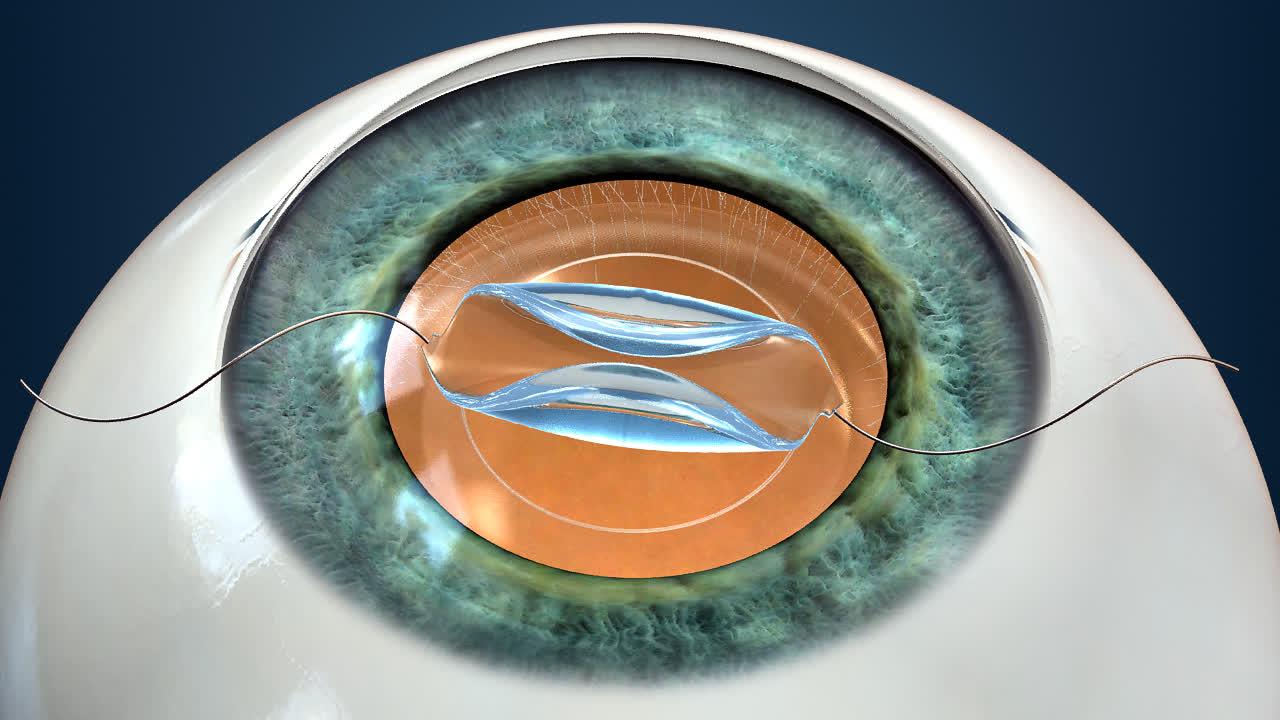- Contact: +91-9270109498 020 24352449
- Email: kuldeepdole@yahoo.co.in

Cataract Surgery in Pune
Cataract surgery, a common and highly effective procedure, aims to restore clear vision for individuals suffering from cataracts, a condition characterized by clouding the eye's natural lens. At Dole Eye Hospital, we understand cataracts' impact on your vision and quality of life. We proudly offer our patients the most advanced and comprehensive cataract surgery options. With modern technology, we aim to provide you with the best possible outcomes and a clear, brighter future.
What is Cataract
A cataract refers to the clouding of the eye's natural lens, located behind the iris (the colored part of the eye). The lens is crucial in focusing light onto the retina, allowing us to see clearly. However, the lens can become progressively opaque and lose its transparency due to aging, prolonged exposure to ultraviolet radiation, certain medications, or underlying medical conditions.
Approximately 97% of individuals who undergo cataract surgery experience improved vision due to the procedure's success.
What are the symptoms of cataracts?
Cataracts typically develop slowly and may not cause noticeable symptoms in the early stages. However, as the cataract progresses, you may begin to experience the following symptoms:
- Blurred or cloudy vision. Objects may appear hazy, foggy, or less clear than before.
- Cataracts can cause increased sensitivity to bright lights, such as sunlight or headlights.
- Cataracts can make it challenging to see clearly in low-light conditions, such as when driving at night or in dimly lit rooms.
- Cataracts can cause colors to appear less vibrant or faded.
- Cataracts can cause double vision in one eye, which may disappear when you close the affected eye.
cataract surgery process
Cataract surgery involves several key steps to restore clear vision:
- 1. Preoperative Evaluation: Your eye doctor will thoroughly examine your cataracts' severity and determine the best surgical approach. This may include measuring your eye's shape and size and evaluating your overall eye health.
- 2. Anesthesia: Before the surgery begins, you will receive local anesthesia to numb the eye and ensure your comfort throughout the procedure. In some cases, you may also be given a sedative to help you relax.
- 3. Incision: To access the lens, a small incision is made in the cornea, the clear front part of the eye.
- Lens Removal: The cloudy lens is gently fragmented and removed using either ultrasound (phacoemulsification) or laser technology. This step aims to clear the visual pathway.
- 4. Intraocular Lens (IOL) Implantation: An artificial intraocular lens is inserted into the same location where the natural lens was removed. This lens will be a permanent replacement, focusing light onto the retina and restoring clear vision.
- 5. Wound Closure: The incision is usually self-sealing and does not require stitches. It will heal on its own over time.
- 6. Postoperative Care: After the surgery, you may be prescribed eye drops or medications to prevent infection, reduce inflammation, and promote healing. Your eye doctor will provide instructions on caring for your eyes and schedule follow-up appointments to monitor your recovery.
Cataract surgery is typically outpatient, meaning you can go home on the same day. It is generally safe and well-tolerated, with a high success rate in improving vision and quality of life for those affected by cataracts.
Most individuals undergoing cataract surgery report minimal to no pain during or after the procedure. To ensure your comfort, a topical anesthetic in eye drops will be administered to numb your eye during surgery.
Following the surgery, you may experience a mildly gritty or tender sensation in your eye, which can be alleviated with over-the-counter pain medication.
Types of Surgery
There are different types of surgery available for cataract treatment. Some types of cataract surgery are
- Phacoemulsification
- Extracapsular Cataract Extraction (ECCE)
- Laser-Assisted Cataract Surgery (LACS)
- Intracapsular Cataract Extraction (ICCE)
Cataract surgery recovery Tips
Recovering from cataract surgery is generally a smooth process. Still, following your doctor's instructions for a successful recovery is important. Here are some tips to help you during your cataract surgery recovery:
- 1.Take Rest. Avoid strenuous activities, heavy lifting, bending over, and any activities that strain your eyes.
- 2.Use prescribed eye drops. Use them as directed, following the recommended dosage and frequency.
- 3.Protect your eyes from bright lights, wind, dust, and other irritants. Wear sunglasses outdoors to protect your eyes from harmful UV rays.
- 4.Avoid rubbing or touching your eyes.
- 5.Avoid getting water, soap, or shampoo directly in your eyes during showers. You may use a clean, damp washcloth to clean your face gently.
- 6.Take prescribed pain medication if needed. Take it as directed and only if necessary.
- 7.Avoid driving. Wait until your doctor confirms that it is safe for you to resume driving.
- 8.Contact your doctor immediately if you experience severe pain, sudden vision loss, persistent redness, or any other concerning symptoms.
